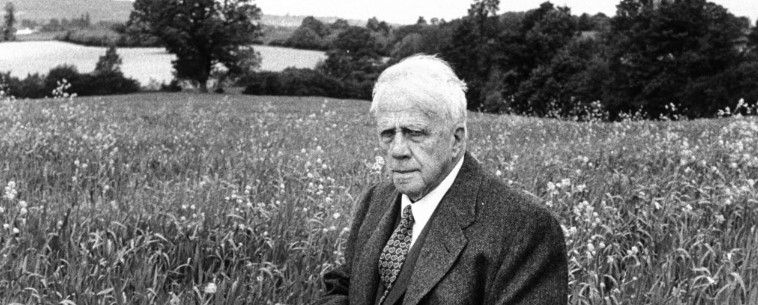
Robert Frost Quotes: Nature and Life Choices
Robert Frost, an iconic figure in American poetry, intricately intertwined themes of nature and profound human experiences in his works. His verses delve deep into the complexities of life choices, the inexorable flow of time, and our intrinsic connection to the natural world. Through his eloquent words, Frost offers timeless wisdom that continues to resonate with readers today.
"Two roads diverged in a wood, and I—
I took the one less traveled by,
And that has made all the difference."
This famous line from "The Road Not Taken" encapsulates the essence of individualism and the impact of our decisions. Frost presents a metaphorical crossroads, urging us to consider the paths we choose. The road "less traveled by" symbolizes unconventional choices that defy societal expectations. By embracing the uncertain and the unfamiliar, we carve out unique experiences that shape our identities. Isn't it often the toughest choices that define who we truly are?
"The woods are lovely, dark and deep,
But I have promises to keep,
And miles to go before I sleep,
And miles to go before I sleep."
In "Stopping by Woods on a Snowy Evening," Frost reflects on the allure of escapism versus the pull of responsibility. The "lovely, dark and deep" woods represent a tempting respite from life's demands. Yet, the repetition of "miles to go before I sleep" underscores a commitment to duty and the journey ahead. It speaks to the human experience of balancing desire with obligation, reminding us of the perseverance required to fulfill our promises.
"Nature's first green is gold,
Her hardest hue to hold."
From "Nothing Gold Can Stay," this line poignantly captures the transient beauty of nature and life. The "first green" symbolizes youth and new beginnings, while "gold" denotes preciousness. Frost highlights the fleeting nature of these moments, emphasizing how quickly they pass. It's a subtle reminder to cherish the present, for the most exquisite phases of life are often the most ephemeral.
"The best way out is always through."
A straightforward yet powerful assertion from "A Servant to Servants," this quote advocates confronting challenges head-on. Frost suggests that avoidance only prolongs hardship, whereas facing difficulties directly leads to resolution. It's an encouragement to embrace resilience and courage in the face of adversity, reinforcing the idea that progress is achieved through perseverance.
"In three words I can sum up everything I've learned about life: it goes on."
With remarkable brevity, Frost distills the essence of life's continuity. This reflection acknowledges that despite trials and tribulations, time moves forward inexorably. It's a testament to human endurance and the inevitability of change. The phrase offers comfort in its simplicity, assuring us that no matter the circumstances, life persists.
"Some say the world will end in fire,
Some say in ice."
In "Fire and Ice," Frost contemplates the forces of desire and hatred. "Fire" represents passion and desire, while "ice" symbolizes hate and indifference. By juxtaposing these elements, he explores the destructive potential of both intense emotions and cold detachment. The poem prompts introspection about the forces that drive human behavior and the consequences they may yield.
"Whose woods these are I think I know
His house is in the village though;
He will not see me stopping here
To watch his woods fill up with snow."
This excerpt from "Stopping by Woods on a Snowy Evening" delves into themes of anonymity and solitude. The narrator finds solace in the quiet observation of nature, away from prying eyes. The act of "stopping" reflects a moment of introspection amidst the bustle of life. Frost invites us to consider the value of pausing to appreciate the simple, often overlooked moments that offer profound peace.
"When I see birches bend to left and right
Across the lines of straighter darker trees,
I like to think some boy's been swinging them."
In "Birches," Frost blends reality with imagination. The bending birches symbolize a yearning for the innocence and freedom of childhood. By preferring the idea of a boy swinging on them over the harsh reality of ice storms, he expresses a desire to escape the burdens of adulthood. This quote evokes nostalgia and the longing for simpler times when joy was found in carefree play.
"Good fences make good neighbours."
From "Mending Wall," this adage explores the necessity and paradox of boundaries. While walls can separate, they also define spaces and foster mutual respect. Frost examines the balance between community and individuality, questioning whether barriers bring people together or keep them apart. It's a contemplation of the structures we build in our relationships and the reasons behind them.
"Don't ever take a fence down until you know why it was put up."
This sage advice cautions against hasty judgments and actions. Frost emphasizes the importance of understanding the purpose and history behind established norms before altering them. By urging us to consider the reasons for existing boundaries, he highlights the wisdom in thoughtful deliberation. It's a reminder that change, while sometimes necessary, should be approached with awareness and respect.
Robert Frost's poetry offers a rich tapestry of insights into nature and the human condition. His words encourage us to reflect on our choices, embrace the journey of life, and find meaning in the world around us. Through his contemplative verses, we are invited to explore the depths of our experiences and the paths we tread.
- robert_frost
- poetry
- nature
- life_choices
- quotes
- american_poetry
- inspiration
- literature